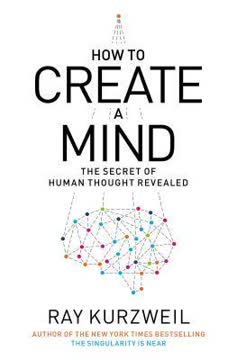Key Takeaways
1. AI and Exponential Technologies Will Radically Transform Human Civilization
"Humanity's millennia-long march toward the Singularity has become a sprint."
Exponential Technological Transformation. The book argues that we are entering a period of unprecedented technological change driven by information technologies. The law of accelerating returns suggests that technological progress is not linear but exponential, with each advance making the next innovations easier and faster.
Key Technological Convergence Areas:
- Artificial Intelligence
- Biotechnology
- Nanotechnology
- Computing Power
- Brain-Computer Interfaces
Societal Impact. These converging technologies will fundamentally reshape human existence, potentially solving long-standing challenges like poverty, disease, and limited human potential. The changes will be so profound that they will essentially create a new form of human experience.
2. Artificial Intelligence is Rapidly Evolving Beyond Human Capabilities
"In one area after another, they will be better than all humans by 2029."
AI's Exponential Progress. Artificial intelligence is advancing at an unprecedented rate, with systems now capable of mastering complex tasks across multiple domains. From game-playing to medical diagnosis, AI is consistently outperforming human experts.
Key AI Breakthrough Areas:
- Natural language processing
- Medical diagnosis
- Scientific research
- Creative problem-solving
- Computational speed
Transformative Potential. AI is not just improving incrementally but fundamentally reimagining how intelligence can operate, potentially creating cognitive capabilities far beyond human biological limitations.
3. Merging Human Intelligence with Artificial Intelligence
"We will merge with AI and augment ourselves with millions of times the computational power that our biology gave us."
Brain-Computer Interface Revolution. The book envisions a future where human intelligence is directly extended through neural connections to computational systems, dramatically expanding cognitive capabilities.
Integration Strategies:
- Nanobots connecting brain to cloud computing
- Direct neural interfaces
- Augmented cognitive processing
- Expanded memory and learning capabilities
Philosophical Implications. This merger challenges traditional concepts of human identity, suggesting a future where consciousness and intelligence are fluid, expandable concepts rather than fixed biological constraints.
4. Technological Progress is Solving Fundamental Human Challenges
"Information technology is about ideas, and exponentially improving our ability to share ideas and create new ones gives each of us greater power to fulfill our human potential."
Solving Global Problems. Emerging technologies are systematically addressing fundamental human challenges across multiple domains, from healthcare to environmental sustainability.
Transformation Areas:
- Reducing global poverty
- Improving education access
- Advancing medical treatments
- Creating sustainable energy solutions
- Enhancing global communication
Positive Feedback Loops. Technological advances create virtuous cycles where each innovation makes subsequent innovations easier, accelerating human progress.
5. The Path to Longevity and Enhanced Human Potential
"The ultimate goal is to put our destiny in our own hands, not in the metaphorical hands of fate—to live as long as we wish."
Radical Life Extension. Advanced biotechnologies and AI are developing strategies to dramatically extend human lifespan, potentially allowing individuals to live well beyond current biological limitations.
Longevity Strategies:
- Advanced medical nanotechnology
- Genetic repair mechanisms
- AI-driven personalized healthcare
- Cellular regeneration techniques
- Mind uploading technologies
Transformative Potential. These technologies promise not just longer life, but enhanced quality of life, allowing humans to transcend current physical and cognitive limitations.
6. Nanotechnology Will Revolutionize Medicine and Manufacturing
"Ultimately, nanobots will be able to replace biological organs altogether, if needed or desired."
Molecular-Scale Engineering. Nanotechnology represents a fundamental revolution in our ability to manipulate matter at the atomic and molecular levels.
Revolutionary Applications:
- Targeted medical interventions
- Molecular-level manufacturing
- Organ replacement
- Precise material engineering
- Environmental restoration
Economic and Social Implications. Nanotechnology could create abundance by making production costs negligible, potentially redesigning economic and social structures.
7. Addressing Existential Risks from Emerging Technologies
"We have a moral imperative to realize this promise of new technologies while mitigating the peril."
Technological Risks Management. As technologies become more powerful, they simultaneously present unprecedented opportunities and potential existential risks.
Risk Mitigation Strategies:
- Ethical AI development
- International cooperation
- Robust safety protocols
- Distributed technological access
- Proactive risk assessment
Balanced Approach. The book advocates for a nuanced approach that embraces technological progress while maintaining rigorous safeguards and ethical considerations.
Last updated:
FAQ
What's The Singularity Is Nearer about?
- Exploration of Singularity: The book delves into the concept of the Singularity, where human intelligence merges with AI, leading to transformative changes in human consciousness and capabilities.
- Technological Growth: It emphasizes the exponential growth of technology, particularly in AI, biotechnology, and nanotechnology, and how these advancements will reshape human life.
- Future Predictions: Ray Kurzweil predicts significant changes by the 2030s and 2040s, including radical life extension and the potential for humans to digitally back up their minds.
Why should I read The Singularity Is Nearer?
- Insight into Future Trends: The book offers a comprehensive overview of emerging technologies that will shape the future, essential for anyone interested in technology and its societal impacts.
- Philosophical and Ethical Exploration: It raises important questions about identity, consciousness, and the ethical implications of merging with AI, prompting critical thinking.
- Authoritative Perspective: As a leading futurist, Kurzweil provides unique insights based on decades of research, making it a valuable resource for understanding technology's trajectory.
What are the key takeaways of The Singularity Is Nearer?
- Merging with AI: Humanity is on a path to merge with AI, enhancing cognitive abilities and potentially redefining what it means to be human.
- Exponential Progress: Technological advancements are accelerating, particularly in computing, genetics, and nanotechnology, leading to unprecedented improvements in quality of life.
- Opportunities and Risks: The book discusses both the opportunities presented by these advancements and the potential risks, emphasizing the need for careful management.
What are the best quotes from The Singularity Is Nearer and what do they mean?
- "The sands of time will start running in rather than out.": This quote encapsulates the idea of longevity escape velocity, suggesting that medical advancements will allow people to add more years to their lives than they lose.
- "The future is not something we enter. The future is something we create.": Emphasizes the proactive role humans play in shaping the future through innovation and technology.
- "We are the creators of our own destiny.": Highlights the importance of ethical considerations in the development of AI and other technologies.
How does Ray Kurzweil define the Singularity in The Singularity Is Nearer?
- Metaphorical Definition: Kurzweil uses "Singularity" as a metaphor from mathematics and physics, where traditional laws break down due to rapid change.
- Integration of AI and Humanity: He predicts the Singularity will occur when humans augment their biological intelligence with AI, transforming consciousness and capabilities.
- Timeline for Singularity: Kurzweil estimates it will occur around 2045, based on current trends in technology and AI development.
What is the law of accelerating returns in The Singularity Is Nearer?
- Exponential Growth Principle: This law states that technological progress is accelerating, meaning each new advancement makes future advancements easier and faster.
- Feedback Loops: Innovations in information technology create feedback loops that drive further innovation, leading to exponential improvements.
- Historical Context: Kurzweil provides historical examples to illustrate how this law has operated in the past, suggesting it will continue to shape the future.
How does The Singularity Is Nearer address the concept of radical life extension?
- Biotechnology and Nanotechnology: Kurzweil discusses how advancements in these fields will enable significant increases in human lifespan.
- Longevity Escape Velocity: Introduces the concept where medical advancements allow individuals to live longer than the rate at which they age.
- Ethical Considerations: Addresses ethical implications, including resource allocation and societal impacts, encouraging readers to consider these factors.
What role does AI play in healthcare according to The Singularity Is Nearer?
- AI in Drug Discovery: AI is revolutionizing drug discovery, allowing for faster identification of effective treatments and reducing time and cost.
- Simulated Trials: Predicts AI-driven simulations will replace traditional human trials, providing more accurate and efficient results.
- Personalized Medicine: AI will enable a more personalized approach to healthcare, tailoring treatments to individual genetic profiles and health conditions.
What are the potential risks of AI discussed in The Singularity Is Nearer?
- Existential Threats: Kurzweil acknowledges potential existential risks if AI is not properly managed, emphasizing alignment with human values.
- Misuse of Technology: Discusses potential misuse in warfare and surveillance, advocating for responsible development and regulation.
- Societal Disruption: Warns of societal disruptions, including job displacement and economic inequality, stressing proactive measures.
How does The Singularity Is Nearer define consciousness?
- Complexity of Consciousness: Suggests consciousness arises from intricate interactions of neurons and brain structures, key to replicating it in machines.
- Philosophical Perspectives: Delves into philosophical perspectives, including the hard problem of consciousness and subjective experience.
- AI and Consciousness: Argues advanced AI may achieve forms of consciousness, raising ethical considerations regarding intelligent machines.
What advancements in biotechnology are predicted in The Singularity Is Nearer?
- Gene Editing: Discusses the potential of CRISPR and other technologies to eliminate genetic diseases and enhance human capabilities.
- Nanotechnology in Medicine: Predicts nanobots will play a crucial role in repairing and augmenting human organs, improving health and longevity.
- AI-Driven Health Solutions: Integration of AI with biotechnology will accelerate personalized treatments and preventive measures, transforming healthcare.
How does The Singularity Is Nearer envision the future of work?
- Job Transformation: Predicts AI and automation will transform work, creating new jobs while displacing some existing ones.
- Collaboration with AI: Future work will involve collaboration between humans and AI, enhancing productivity and creativity.
- Economic Implications: Discusses potential shifts in income distribution and the need for social safety nets, advocating for proactive policies.
Review Summary
The Singularity Is Nearer receives mixed reviews, with some praising its optimistic vision of the future and comprehensive overview of AI and technological advancements. Critics argue it lacks new insights and glosses over potential risks. Many readers find Kurzweil's predictions fascinating but note the book's focus on rehashing previous works. Some appreciate the accessible explanations of complex topics, while others feel it lacks depth in addressing societal implications and ethical concerns. Overall, opinions are divided on the book's value and relevance.
Similar Books










Download PDF
Download EPUB
.epub digital book format is ideal for reading ebooks on phones, tablets, and e-readers.









